One of the main, and often reoccurring, questions regarding getting started in the music business is……
“How do I best get myself and my music noticed?â€
If there was one ‘golden ticket’ answer to that question then we’d all be millionaires. However, the suggestions that follow do represent a number of pro-active marketing strategies that perhaps will help starving musical artists and industry folk alike.
The advice here is primarily targeted to those who are DJ/Producer types and working in the electronic/pop/dance arena, but the suggestions can easily apply to those working in other music production, recording and performance fields (artists, musicians, engineers, sound design, etc).
Get Your Music Right
Any form of marketing or self-promotion means pretty much nothing if your product doesn’t equal or stand above what is out there already. You’re in a much stronger starting position if your music, it’s production ethic and content are of high quality and you really have put your all into writing, programming, recording and mixing it. Yes, I know it’s obvious, but nonetheless, that’s the one of the most influential parts.
Social Media Influence
Ah, the dreaded Social Media factor – Yep, MySpace is pretty much abound with tumbleweeds blowing through a desert, though it still (nearly) remains one of the best resources to plonk all your material in one easy to listen to place. Facebook of course is a cool place to build up firstly a local friend/fanbase, and via tagging of gig photos, videos and sharing of news links etc, move more to a national then international arena.
Don’t however put all your promo eggs in just the Facebook basket. We’re all aware how disposable and high volume everything that passes through Facebook is, and the promotion shelf life (thanks to ever rotating posts/news feeds) is literally just 12/24 hours. If therefore, you have a special message, link or resource to promote, consider re-dressing it (so as not to appear ‘spammy’) and re-posting it at later, irregular intervals.
Worth considering too is the setting up of a ‘Like’ (what used to be called a ‘Fan’) page (not a ‘group’). Technically, this attaches itself to your personal profile but visibly becomes a stand alone one-stop shop for fans of your music to get news from and visit independently even if none is forthcoming.
Engage in Twitter – period – just do it. This is a valuable, and controllable strategy that gives you ownership of just what and who appear in your information time-line. Within your outgoing tweets, combine your personality as a creative individual and balance that with some out ‘n out self-promotion. Along the way, also share ‘stuff’ that inspires and entertains you and your presence on the radar will be noticed more for sure. Other, and reasonably prominent ‘share’ resources are of course sites such as Digg, Del.icio.us, Reddit and StumbleUpon – maybe worth the odd promo punt.
YouTube
Consider setting up a YouTube Channel. View this pretty much as your own, on-demand TV channel. If you’ve made actual music videos, recorded live gig footage or even just rotated a few images around to an audio backdrop of your latest mix, production or original work, here’s the place to put it. Hopefully, you’ll be attracting subscribers in no time, who’ll get notified when you upload fresh content.
YouTube videos are a breeze to share and distribute via Facebook etc and are of tremendous value when embedded into personal ‘Blogs’ (which we’ll come to in part two of this feature) and bear in mind that YouTube itself is the world’s 2nd, most used search engine. It makes sense therefore to ‘tag’ your video output with very specific, and sometimes wide reaching (though still relevant) search words to help new listeners and viewers become aware of your name, brand and ultimately, musical content. It is also possible, once large traffic becomes apparent on your YouTube channel to actually make money with the site’s ‘Partner’ program.
Blogging Isn’t Just for Nerds
Linking with the theme of online promotional activity, one of the next most important tools available to music industry hopefuls is the Blog. Setting up a blog can be as easy and cheap, or as complex and expensive as you want it to be. Free blogging software is available to seek out and use, and solutions like WordPress are free too but can be customized (via purchasable or free templates and more) to fit a users brand identity, and their creative vision. But how does a Blog actually benefit those in the music industry?
First and foremost, ‘Content is King!’ – the behemoth that is Google loves, adores and rewards original Blog content, and either ignores or downright punishes ‘copy/paste’, rip off’ and ‘plagiarism’. But what of ‘your’ content?
What To Talk About and Organization
A typical Blog/web presence would have it’s Blog section, where you would maybe talk about certain things like gigs played, studio sessions worked or just thoughts and opinions (and maybe reviews) of some new software or hardware you’ve purchased (or would like to). Even open and honest writings on the pleasures and pains, trials and tribulations of your musical journey. You can choose to be as open as a book or as mysterious as you feel, ultimately be true to yourself and your music.
Fine Tuning Your Goals
The above website can also be a shop front for your work, holding video content, links to your Facebook and Twitter profiles, image galleries, gig diaries and so forth. Don’t however make the mistake of thinking you can lace your Blog/site landing page with hundreds of tag/keywords to aid anyone searching such terms to stumble upon your page. Google will see this kind of thing as a big ‘no-no’ and its search spiders will again bypass ranking your site highly. If you’d like to optimize your music web presence and have a budget to use accordingly, consider tracking down a specialist in S.E.O. (search engine optimization) to provide their expert services.
Perform, Gig and Expose Yourself To The Masses
Ok, these online shenanigans are all well and good, but before this digital world plonked itself squarely in our sight, the best way to interact with your target audience was and still is of course to get out of the house and perform. Whether that’s DJ’n, a solo performance or a full on band gig, it doesn’t matter. Playing your music (recorded or otherwise) to a live audience builds firstly a local following, then hopefully that builds to regional, national and beyond.
The DJ Stuff
For DJ’s, seek out local promoters or club/bar managers – take mixtapes (CDs), business cards and a friendly, though confident attitude. Perhaps offer to play initially for free and try and get a warm up gig for a local hero or, if your lucky, maybe an early slot supporting a big name US, UK or international artist/DJ. By appearing on fliers and posters (whether physical or digital) this adds kudos to your ‘new’ name and presence and enables you to legitimately add these bigger names artists to your ‘appeared with’ section on any future biog.
Whilst playing your first gigs, hand out the aforementioned mixtape stylee, promo CDs to those punters you feel are worthwhile and show genuine interest in your set (don’t forget to include printed info with your contact information and websites on these CD’s). Again, have business cards at the ready to hand to prospective clients, be it the general public interested in booking you for their parties/events, or competitor club owners/promoters paying the odd visit (it happens!).
The Band Stuff
A similar approach applies as above for artists, vocalists, musicians and bands – it’s really a case of plugging yourself into the local live music scene, networking with promoters and venue owners, and seeking out specialist radio jocks that support live music passionately. The latter, with their connections on the ‘festival’ circuit, could also be a route into that arena if he/she gets behind you and your music.
Whilst bands and artists may not have a DJ flavoured ‘mixtape’ CD to throw around, there’s nothing stopping musicians in having either a giveaway sampler of their work to hand to the audience, or perhaps set up a small merchandising area for CDs, T-Shirts and posters, etc. Continuing the businesslike angle here, another option is to raise the cash to perhaps hire a small venue and run and promote your own gig where you will either reap the financial rewards, cover costs or lose money – choose any of these options as a quite probable outcome, but this still remains a possible and viable way to perform/promote.
It goes without saying that early gigs for any artist(s) tend to be hard work, financially unrewarding and sometimes spiritually disheartening. But without this focus, commitment and sometimes sacrifice, neither artist, band or the above DJ’s will grow in profile, experience or maturity.
Record Labels
Record Labels are still approachable. Whether major or independent, they still need product to release. The days of the pro-active A&R man do however seem to be long gone, most these days expect a fully recorded, mixed, mastered and already promoted/buzzing track to land in their lap. It figures though, especially for the DJ/Producer fraternity, that targeting a label dealing with ‘like’ product as their own makes sense.
Such established and respected labels like ‘Defected’ in the UK tend to attract a certain style of music, as would a specialist Techno label in Europe too for example. It’s good for DJ’s to establish relationships with these labels by buying and supporting their product anyway and if said DJ makes a track the label may be interested in, there is a dialogue already open and present.
DIY(Do It Yourself)
Of course, one of the main advantages of this digital world is the possibility that a DJ/Producer, band or artist can [and relatively] easily set up their own label. If you have product that you feel is worthy of release, smaller and higher profile download sites can either be approached direct to form a release agreement, or as is the case with the mighty iTunes, ‘aggregators’ (who act as sort of digital middle-men) can place your music onto the platform on your behalf.Â
Strength in Networking
If you haven’t already done so, consider adding ‘collaboration’ to your musical life. Working with other creatively like minded people not only expands musical production, song writing and live performance boundaries but (even temporary) teaming up can provide live and studio alter-ego’s, AKA’s, etc., and lead to gigs, deals and again, other bountiful networking opportunities.
Target The Big Names
Many ‘A’ list DJs are on Twitter and Facebook. Their Facebook presence tends to be generic and often run by someone ‘on staff’, but Twitter does tend to offer a direct plug-in to many a previously unattainable superstar . Established icons such as the UK’s, Judge Jules also tend to invite communication from fans and other DJs, so take advantage of this. If you have a hot digi-promo, send him and others in your target musical area a link to your Dropbox, Soundcloud or whatever storage space and let ‘em have it!
Use Down Time Productively
Going back, the first point made is that your product, fundamentally needs to be ‘right’ and of good quality, content and production ethic. An efficient use of time for anyone engaged in music production, recording, writing and performing is to get to know their gear inside out. When gigs are quiet, rehearsals non-existent, paid studio sessions dry, then apart from the above mentioned collaboration advice, it makes sense to adopt a geek style mentality and engage in R&D (research and development) auditory sessions.
Just as the amount of music available out there stands at over-saturation level, so too is the huge amount of software, hardware and music-tech options we can invest in. But go limited – really. Don’t fall into the trap of blindly acquiring every plug-in, DAW, controller and other such hardware – be a master of a few well chosen tools. When engaged in the producing, programming and writing process, visiting and efficiently using your sonic armory will have nothing but positive effects on any finished product.
When you know that you can launch (open) a VST/DXI plug-in instrument, and use it to its maximum capability without breaking a sweat, pausing to check the manual or blindly pressing buttons and switches, you know you’ve got it right. And while you’re engaged in this down-time R&D, consider using your audio doodling to print some original sounds you’ve created in the process and add to your auditory reserve library. Once you’re at this stage, then it’s quite probably time to confidently invest in new gear.




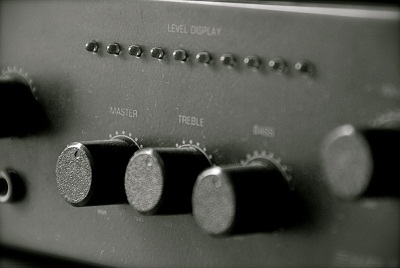
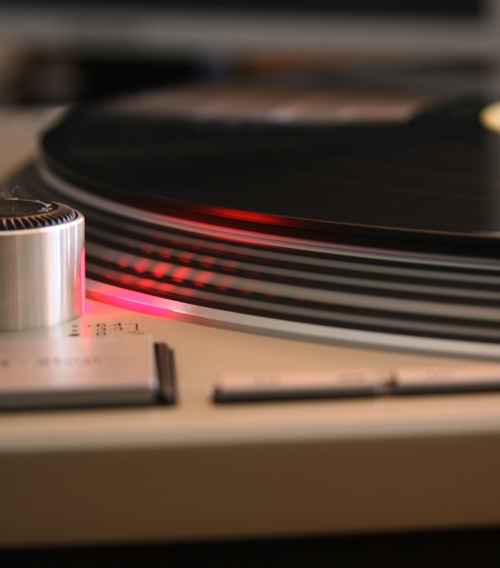
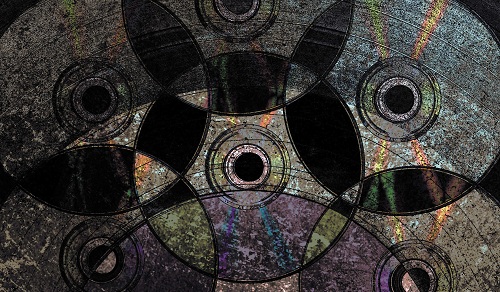
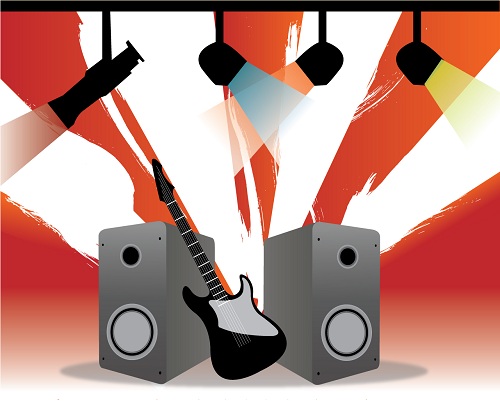
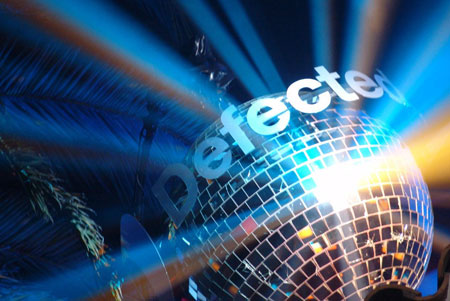
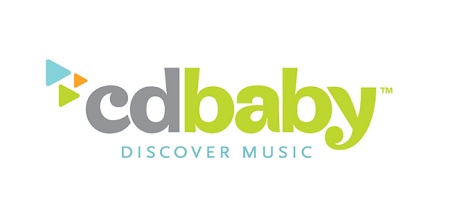
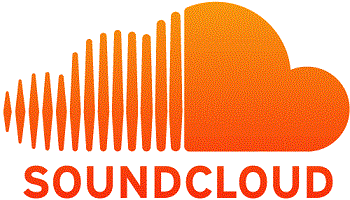

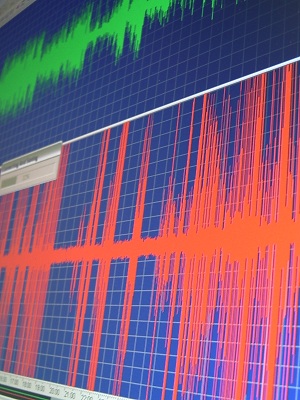
Leave a Reply